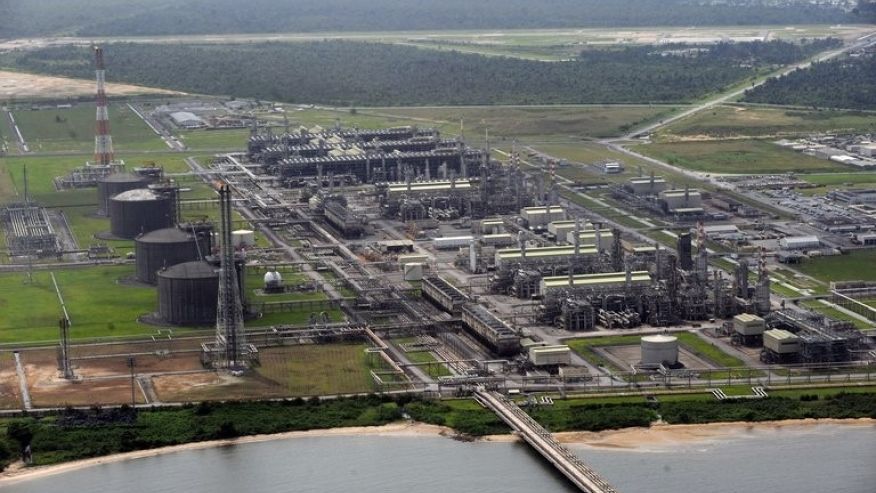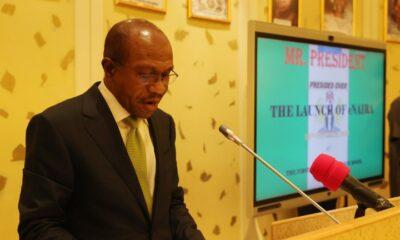Nigeria’s federal government has commenced the implementation of the Central Bank of Nigeria’s (CBN) N250 billion intervention fund for the National Gas Expansion Programme (NGEP), which is expected to create about three million direct and indirect jobs.
However, findings revealed that the federal government’s plan to enthrone an alternative energy regime in the country through its autogas policy may be heading for failure owing to apathy now observed among the petroleum products marketers towards the initiative.
The intervention facility for the NGEP, which is targeted at stimulating finance to the critical sector and motivate investment in the gas value chain being funded by the apex bank, the Permanent Secretary, Ministry of Petroleum Resources, Mr. Bitrus Nabasu, disclosed at the weekend that the process of receiving applications from potential beneficiaries to access the facility had commenced.
He stated that the fund was available to finance the establishment of gas processing plants and small-scale petrochemical plants, gas cylinder manufacturing plants, Compressed Natural Gas (CNG) regasification modular systems, automatic conversion kits or components manufacturing plants, CNG primary and secondary compression stations, as well as micro-distribution outlets and service centres of liquefied petroleum gas (LPG) sales.
Nabasu, noted that the intervention fund was designed to meet certain objectives, including improved access to finance for private sector investments in the domestic gas value chain and stimulate investments in the development of infrastructure to optimise domestic gas resources for It also set out to fast-track the adoption of CNG as the fuel of choice for transportation and power generation, as well as LPG as the fuel of choice for domestic cooking, transportation and captive power.
According to Nabasu, the fund would equally provide leverage for additional private sector investments in the domestic gas market, boost employment across the country and fast-track the development of gas-based industries, particularly petrochemical (fertiliser and methanol, among others).
This is with a view to supporting large industries such as agriculture, textile and related industries.
The fund, he added, would serve the development/enhancement of autogas transportation systems, conversion and distribution infrastructure, enhancement of domestic cylinder production and distribution by cylinder manufacturing plants and LPG wholesale outlets, and any other mid to downstream gas value chain-related activity recommended by the Ministry of Petroleum Resources.
The Permanent Secretary said: “It is expected that parties with the capacity to develop and operate any of the afore-listed projects would need to demonstrate project development experience.
“In addition, interested parties will need to demonstrate technical and commercial capacity.”
Nabasu stressed that interested applicants were required to demonstrate evidence of experience and capabilities in their proposed businesses in order to access the fund.
He urged interested applicants to provide at least general information about them, particularly experiences and evidence of technical competence as well as organisational structure.
Giving further details, Brenda Ataga, who is the Senior Technical Assistant on Gas Development and Investment to the Minister of State, Petroleum Resources, Chief Timipre Sylva, said the fund was launched August 2020 by the CBN, adding that since then 27 applications had been recorded on the high capital expenditure portion which has an obligor limit of N10 billion, while 50 applications were received from the small and medium-scale enterprises (SMEs) side.
The SMEs support portion, she disclosed, has a limit of N50 million, broken into start-ups and experienced applicants.
She disclosed that the evaluation of applicants would be based on seven fundamental areas.
“In this regard, our evaluation covers seven fundamental areas which must be evidenced by applicants, and it is very important that this is stated to the applicants because people have sent us all sorts of applications that are not in line with the recommended framework for evaluation.
“The essence is for us in the ministry to support the propagation of gas and also the creation of jobs through access to financing,’’ she said
SMEs, she added, would also follow a similar structure, noting that start-ups would enjoy some leniency in the financial model.
Stating that SMEs will prove that they are registered in Nigeria, pay their taxes, prove affiliation to first-class companies which are already established businesses with good track records within the gas value chain, she pointed out that there was no deadline for filing of applications.
According to her, some preferential treatment would be accorded indigenous companies as well as gender-based considerations for companies in the SMEs’ category.
Ataga noted that one of the positives to be derived from the fund is its potential to support the government’s drive to reduce greenhouse gases by a minimum of 50 percent.
Meanwhile, the federal government’s plan to enthrone an alternative energy regime in the country through its autogas policy may be heading for failure owing to apathy now observed among the petroleum products marketers towards the initiative.
THISDAY gathered that the absence of a sufficient number of cars converted from petrol-powered to either Compressed Natural Gas (CNG) or Liquefied Petroleum Gas (LPG)-powered in the country and the high cost of gas was dampening marketers’ interest in investing in the building and setting up of autogas filling stations.
In addition, the seeming failure of the federal government to convert about one million vehicles between December 2020, when the NGEP and the autogas initiative were launched, to December 2021, has further contributed to the marketers’ disinterest to continue with their investment in the programme.
The Minister of State for Petroleum Resources, Chief Timipre Sylva and the Group Managing Director of the Nigerian National Petroleum Corporation (NNPC), Mallam Mele Kyari, had promised that the government was going to assist Nigerians to convert their cars free of charge.
But Sylva’s Technical Adviser on Gas Business and Policy Implementation, Mr. Justice Derefaka, had said the conversion of cars, which he estimated was to cost between N200,000 and N250,000 for one car, was to be borne by each vehicle owner.
However, some of the marketers who spoke to THISDAY over the weekend on conditions of anonymity, said they would not take the risk of borrowing huge sums of money to invest in autogas stations when they were not sure of those to patronize them.
They argued that contrary to what it said, the federal has not been able to convert the one million vehicles they boasted they were going to convert before December 2021, adding that no businessman ventures into a business where there is no market for his goods or services.
One of the marketers who belongs to the Depot and Petroleum Products Marketers Association of Nigeria (DAPPMAN) said though the CBN had given them a repayment term of 10 years for the loan, it was no enough to attract them to go and borrow and invest in autogas facilities.
Sylva announced recently in Kano that the government had immediately reduced the domestic base price of natural gas to power plant producers from $2.50 to $2.18 per standard cubic feet (scf).
However, efforts made to get either the Ministry of Petroleum or the NNPC to react to the issues, particularly the extent reached with the conversion of the car, proved abortive as neither of them took their phone calls or replied to texts sent them.



 Naira3 weeks ago
Naira3 weeks ago


 News4 weeks ago
News4 weeks ago


 Naira4 weeks ago
Naira4 weeks ago
 Naira3 weeks ago
Naira3 weeks ago


 Jobs3 weeks ago
Jobs3 weeks ago


 Travel3 weeks ago
Travel3 weeks ago
 Naira3 weeks ago
Naira3 weeks ago
 Investment4 weeks ago
Investment4 weeks ago


















